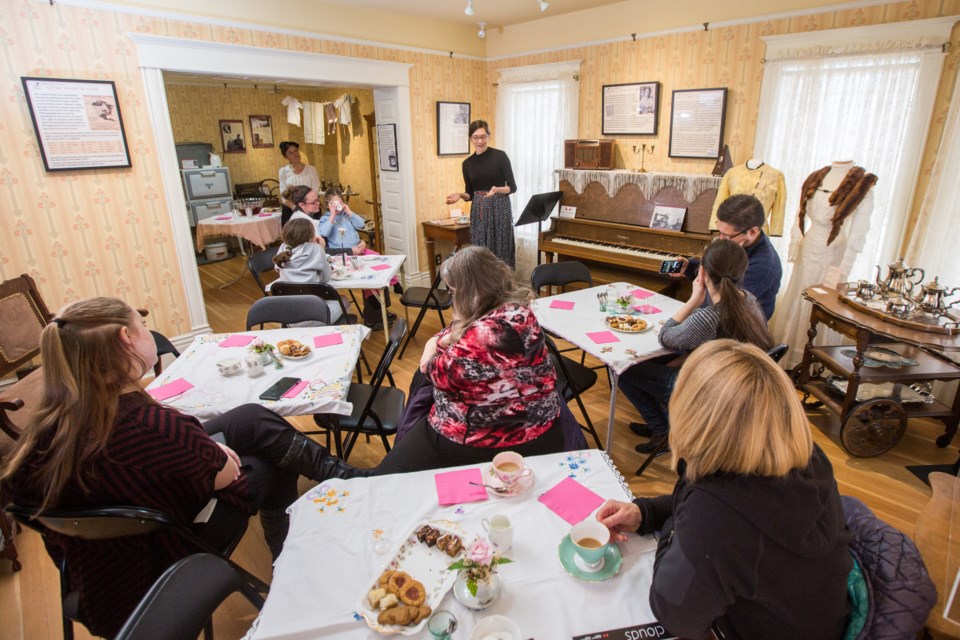Citizens are invited to tip their teacups to a monumental event that changed the future for women 90 years ago.
The Okotoks Museum & Archives is hosting a Pink Tea reception Oct. 18 from 1 p.m. to 3 p.m. to honour Alberta’s Famous Five who were petitioners in the Person’s Case in the 1920s. The group consisted of Henrietta Muir Edwards, Nellie Mooney McClung, Louise Crummy McKinney, Irene Marryat Parlby and judge Emily Murphy.
Museum specialist Kathy Coutts said in addition to serving coffee, tea, punch and dainties, the event will feature a short program at 2 p.m. to explain what The Person’s Case was, why Pink Teas were held and the work of the Famous Five.
“I will share the importance of that landmark decision and talk briefly about each of the women who comprised the famous five because they were strong independent women, very community minded, and what impact they had in the lives of women who came after them,” said Coutts.
In 1928, the five women petitioned the Supreme Court of Canada to include females in the definition of “persons” in Section 24 of the British North America Act, but the request was denied.
“Those famous five women didn’t take no for an answer and took their petition to the next court of appeal, which at the time was the Judicial Committee of the Privy Council in London, England,” said Coutts.
When the privy council approved their request on Oct. 18, 1929, it became a monumental event and contributed to the development of women’s rights in Canada, said Coutts.
“The landmark decisions not just affected those who wanted to seek public office or become a senator, it affected every Canadian woman because they were legally recognized as persons under the British North America Act,” she said. “Prior to that time, under the act, the word ‘person’ did not include females. It really was the fight for equality.”
Coutts said while the decision didn’t affect women’s daily lives, it made an impact in the eyes of the law.
“That’s what prompted the whole Person’s Case was the inability for a woman to be a judge or be a senator,” she said. “Not every woman in Canada wanted to be a judge or senator, but every woman across Canada wanted to be recognized as a person.”
Coutts said the upcoming Pink Tea follows a similar event the museum held in 2016 to celebrate when women got the right to vote.
“I thought this is another opportunity to host a pink tea to acknowledge the work of the famous five and also celebrate that landmark legal decision for Canadian women,” she said.
Pink teas played an important role in both women’s right to vote and the Person’s Case, said Coutts.
“Because the activities of the famous five were controversial and often had to be done in secret, they came together under the premise that they were having innocent-sounding ‘Pink Teas,’” she said. “Really, they were political strategy sessions, but to their husbands and fathers and the men of the community they thought it was an innocent-sounding social tea and no self-respecting man would want to attend. They became safe places to discuss equal rights. It allowed women to meet quietly without fear of being discovered or hauled home.”




